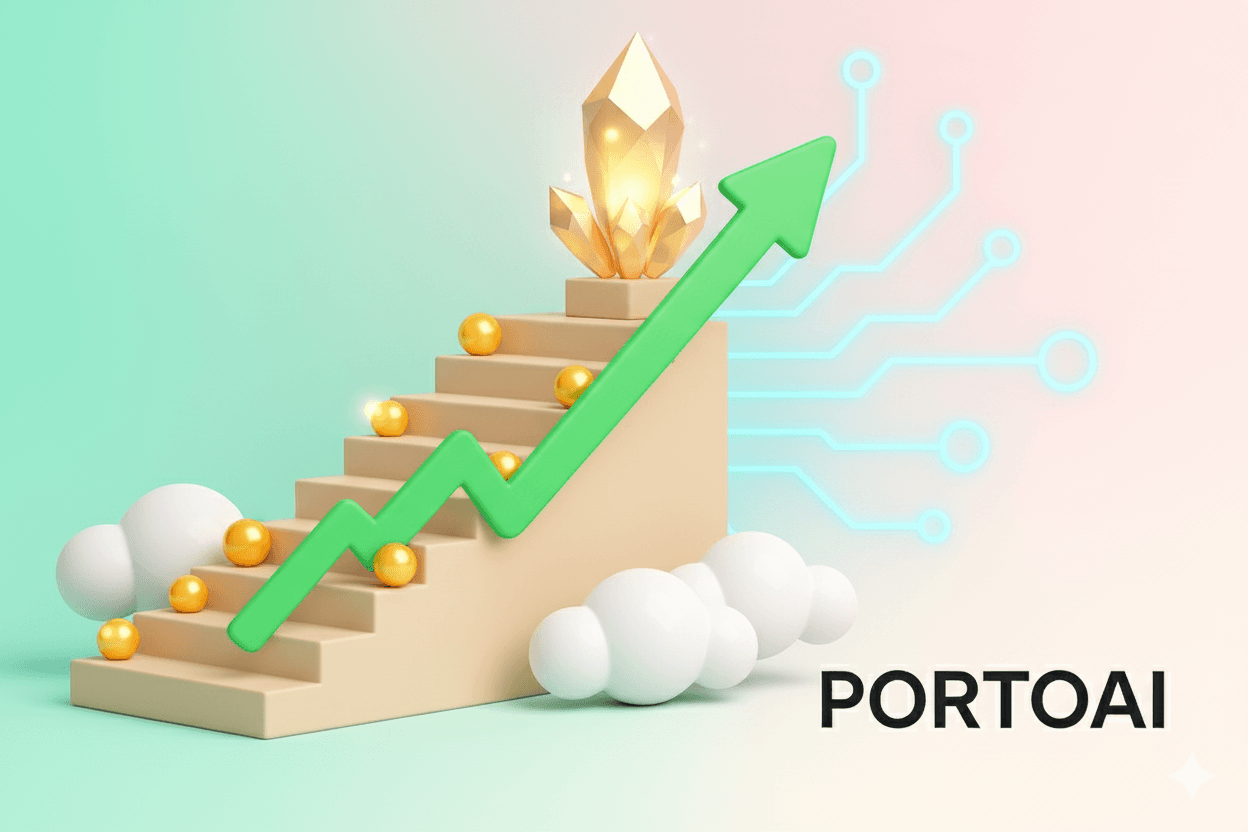Hybrid Funds vs. Equity Funds: Which Investment Strategy Fits Your Goals?

Venkateshwar Jambula
Lead Market Researcher
3 min read
•Published on September 18, 2024
•Hybrid Funds vs. Equity Funds: Navigating Your Investment Strategy
In the pursuit of superior investment returns, investors often grapple with a fundamental decision: should they lean towards the growth potential of pure equity, or the balanced approach of hybrid funds? While market sentiment can be a siren call, a disciplined, data-driven approach is paramount for long-term wealth creation. At PortoAI, we empower sophisticated investors to cut through market noise and make confident, informed decisions.
This analysis delves into the distinct characteristics of equity and hybrid funds, exploring when each strategy is most appropriate and how to align your choice with your unique financial objectives.
Understanding Equity Funds: The Engine of Capital Appreciation
Equity funds, by definition, allocate the majority of their corpus to stocks and other equity-related instruments. This direct exposure to the stock market offers the highest potential for capital appreciation, but it also comes with the highest degree of risk and volatility.
When Are Equity Funds Suitable?
Equity funds are best suited for investors with a long-term investment horizon and a high risk tolerance. Consider an investor in their early twenties planning for retirement decades away. With ample time to ride out market fluctuations, such an investor can strategically deploy capital into equity funds, potentially benefiting from significant long-term growth. For instance, consistent, disciplined investment via a Systematic Investment Plan (SIP) in a well-chosen equity fund can be a powerful engine for wealth accumulation over 30-35 years.
Understanding Hybrid Funds: The Art of Balanced Investing
Hybrid funds offer a diversified approach by investing in a blend of asset classes, typically equity and debt instruments. This strategic combination aims to moderate risk while still participating in potential market upside.
The Dual Benefit of Hybrid Funds
- Equity Component: Drives potential for capital appreciation and wealth creation, especially during periods of market growth.
- Debt Component: Provides a stabilizing effect, cushioning the portfolio against sharp downturns and reducing overall volatility. This can be particularly beneficial when interest rates are expected to decline or when equity market upside is anticipated to be moderate.
Types of Hybrid Funds
Hybrid funds can be broadly categorized, with Equity-Oriented Hybrid Funds and Debt-Oriented Hybrid Funds (often historically referred to as Monthly Income Plans or MIPs) being common classifications. The specific allocation between equity and debt dictates the fund's risk-return profile.
When Are Hybrid Funds Suitable?
Hybrid funds are an excellent option for investors seeking a balance between growth and risk mitigation. Imagine an investor with a medium-term goal, such as saving for a significant purchase within 5-7 years. A hybrid fund can offer the potential for growth without exposing the capital to the extreme volatility of pure equity, making it suitable for those with a moderate risk appetite.
Equity Funds vs. Hybrid Funds: Making the Right Choice
The decision between equity and hybrid funds is not a one-size-fits-all answer. It hinges on a confluence of personal financial factors:
- Investment Objective: What are you saving for? (e.g., retirement, down payment, wealth preservation)
- Investment Horizon: How long can your capital remain invested?
- Risk Appetite: How comfortable are you with potential fluctuations in your portfolio's value?
- Age: Younger investors typically have a longer runway for higher-risk, higher-reward strategies.
Why Hybrid Funds Appeal to Many Investors
Hybrid funds are often favored for their inherent diversification. By participating in both equities and fixed-income securities, they align with the fundamental investment principle of spreading risk. This strategy can lead to more consistent returns compared to pure equity, especially in choppy market conditions. For the conservative investor who wishes to benefit from equity market growth without full exposure, hybrid funds present a compelling middle ground.
Leveraging Data for Confident Investment Decisions
Choosing the right investment vehicle is a critical step. At PortoAI, we believe that sophisticated investors should leverage cutting-edge technology to refine their strategy. Our PortoAI Market Lens synthesizes vast amounts of market data, providing clear signals and insights that can help you discern the optimal allocation for your portfolio. Furthermore, our risk console allows you to simulate different scenarios and understand the potential impact of volatility on your holdings, empowering you to make decisions with confidence.
Conclusion
Ultimately, the optimal choice between equity and hybrid funds depends entirely on your individual circumstances and financial goals. There is no universally superior option; the 'best' fund is the one that aligns with your personal risk tolerance, time horizon, and objectives.
For investors seeking to systematically analyze their options and gain a data-driven edge, PortoAI offers an AI-powered platform designed to enhance your investment research and decision-making process.
Happy investing!
Blog
Investment Insights and Tips
Explore our latest investment strategies and insights.

Stocks
Master Investment Psychology: Control Emotions for Smarter Stock Decisions
The Psychology of Stock Investment: Understanding Emotions That Affect Investment Decisions A stock market is a funny place – both the seller and buye...
Venkateshwar Jambula
November 7, 2024
•4 min read

Stocks
Power Grid India Stock: Analyzing PGCIL's Price Movements & Future
The Rise and Fall: Unraveling the Power Grid Corporation of India Stock Price The Power Grid Corporation of India Stock Price (PGCIL) has experienced ...
Venkateshwar Jambula
November 6, 2024
•10 min read

Stocks
Are Multibagger Stocks Still Possible in 2025? Your AI Guide
These 6 Multibagger Stocks Exploded in 2025 — Is Your Portfolio Still in 2022? Till June 2025, the benchmark Sensex has risen by around 4%, reflecting...
Venkateshwar Jambula
November 5, 2024
•11 min read

Stocks
Top 5 Indian Growth Stocks & Sectors for 2025: AI-Driven Insights
Top 5 Best Growth Stocks in India & Sectors to Watch in 2025 You see the market correction in late 2024 and early 2025 was driven by weak economic...
Venkateshwar Jambula
November 4, 2024
•9 min read